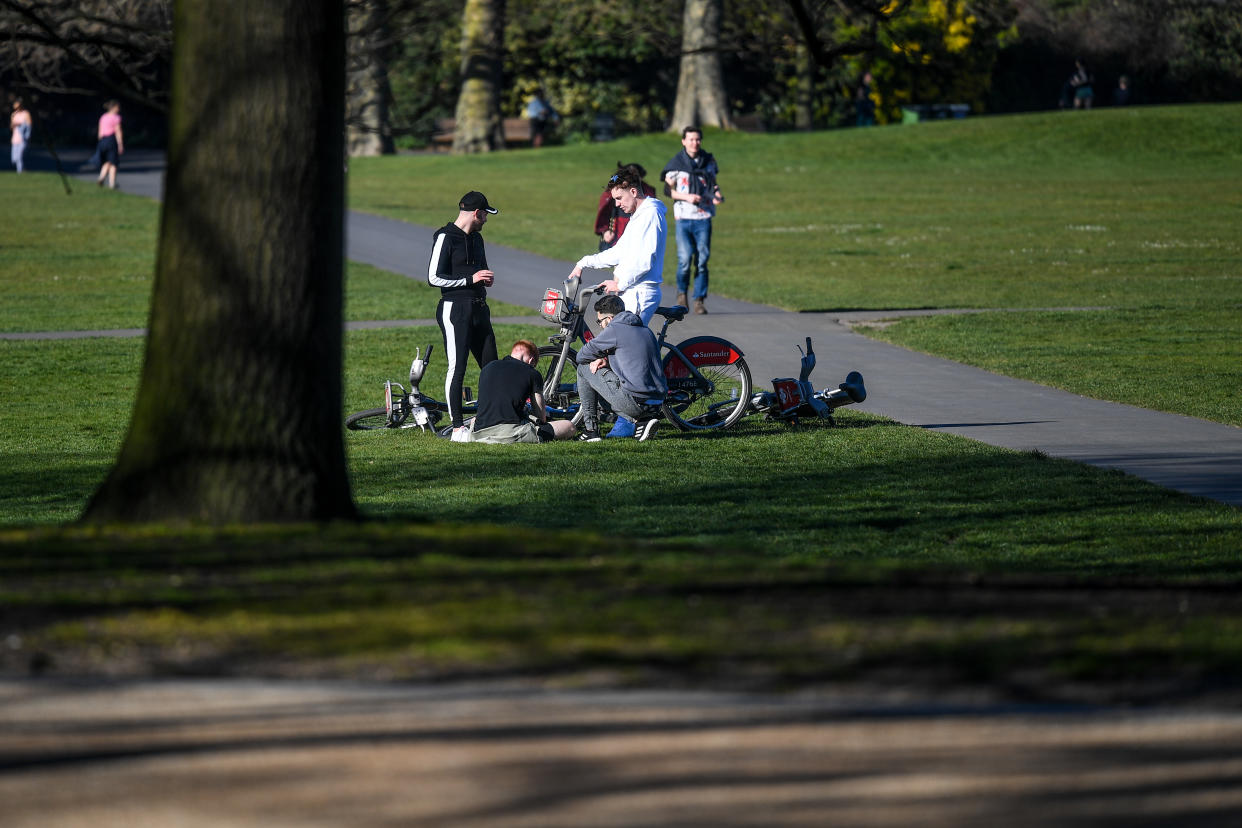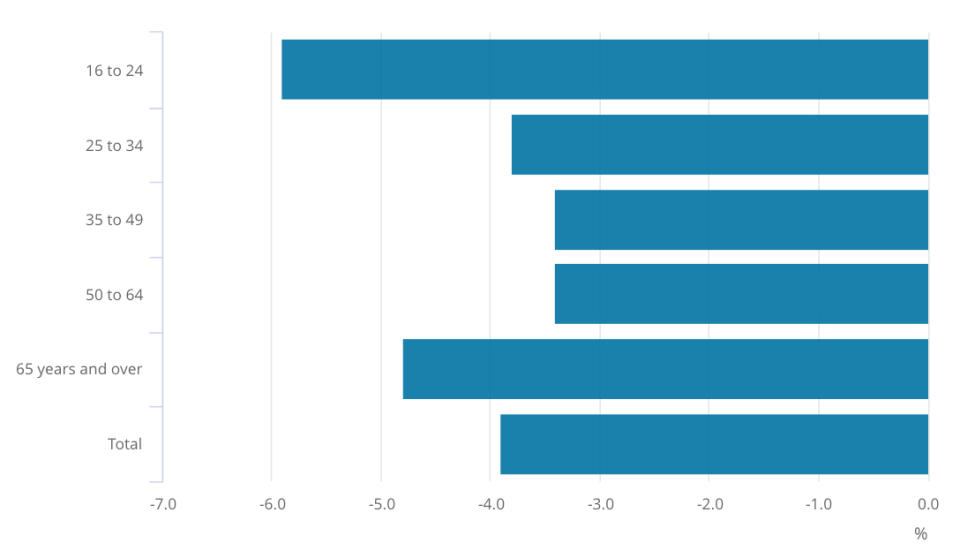Coronavirus: Young people suffer steepest drop in work during lockdown

Young people saw the steepest drop in working hours as the coronavirus crisis began to engulf the UK, according to official figures.
New data shines fresh light on how the pandemic and lockdown have ravaged the labour market, suggesting young workers have been among the worst-hit by cuts to jobs and hours during the crisis.
Workers under 25 are among the most likely to work in industries most affected by the government’s lockdown curbs on business, Office for National Statistics (ONS) data released on Wednesday shows.
Accommodation and food services has seen the biggest decline in working hours of any sector as many restaurants, cafes and bars have been forced to shut up shop for months. Some 16.3% of all workers aged 16-24 work in the industry.
READ MORE: How the coronavirus pandemic could scar a generation of young workers
Young workers also make up a large share of workers in what the ONS calls “non-standard forms of employment,” such as zero-hour contracts. Such contracts give workers less security at work, making it easier for firms to slash their hours or jobs.
The ONS data shows average hours among young workers down 5.9% in January, February and March compared to the same three months a year earlier. The figures are likely to have declined much further in April and May, as the lockdown only came into effect in late March.
It marked the highest of any age group, and significantly above the average decline for all ages of 3.9%. The data is based on a labour force survey.

The figures provide some of the most robust evidence yet of the scale of the impact of COVID-19 on young people’s livelihoods.
A timelag in ONS employment data and the lack of a demographic breakdown in HMRC furlough data means the exact numbers of young people out of work or on furlough or reduced hours are not yet clear.
But a survey by the Resolution Foundation think tank suggests a third of 18-24-year-olds have lost their job or been furloughed, compared to a sixth of working-age adults. It also found 35% of young people in work reported earning less than before the outbreak, compared to 23% of working-age adults overall.
READ MORE: What to do if you lose your graduate placement this summer
Previous research by the Institute for Fiscal Studies also shows under-25s are more than twice as likely to work in sectors that have been shut down, from hospitality to leisure, travel and retail. The government’s furlough scheme has protected many jobs so far, but analysts expect lay-offs to mount as support is tapered off later this year and weak demand hurts employers.
The impact is not limited to existing jobs, with a steep decline in hiring also hitting young people hard. Almost a third of graduate employers in one survey had slashed internships, and two-thirds cancelled work experience. Another poll of students found 63% of those applying for jobs had seen applications paused or offers withdrawn.
The number out of work is likely to swell as many more leave education and look for work this summer. Past downturns show such young people are the most disadvantaged in job-hunting during a recession, with their limited experience thwarting their chances as vacancy levels plummet.
Analysis by the Resolution Foundation last month suggests youth unemployment could hit one million later this year. The think tank’s research from previous recessions suggests the impact could be long-lasting, with calls for a youth jobs guarantee to stop the recession ‘scarring’ career and pay prospects for years to come.
Unemployment raises the chances of young people being stuck in lower-paid, lower-skilled work or without a job at all years down the line. Low-skilled teenagers leaving education during the crisis will be 37% less likely to be in work in three years’ time, according to the Resolution Foundation. Graduates’ chances are predicted to fall by 13%.


